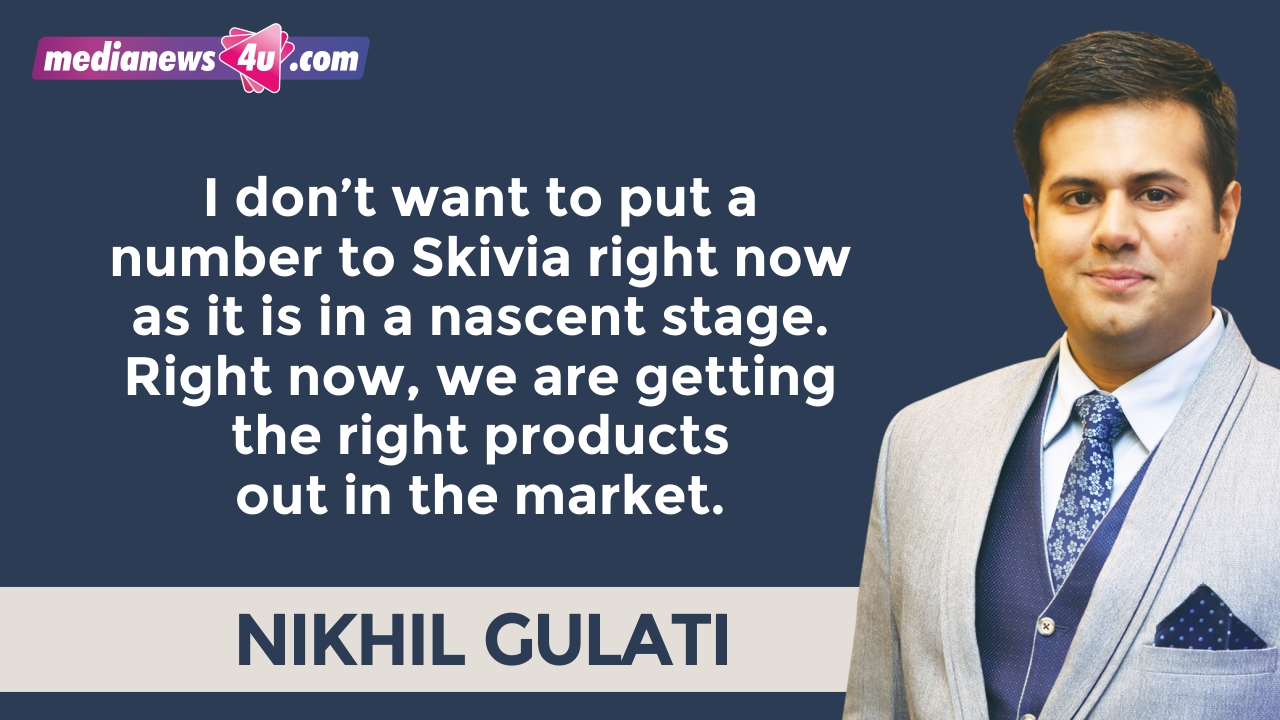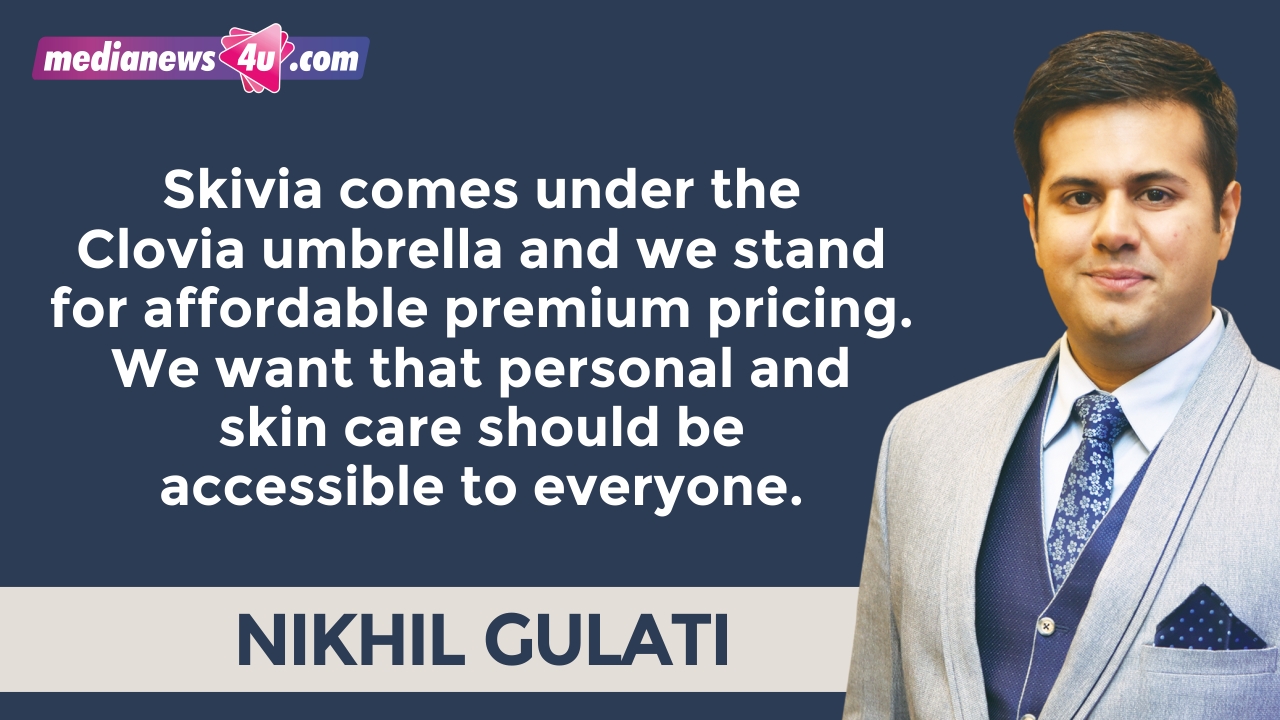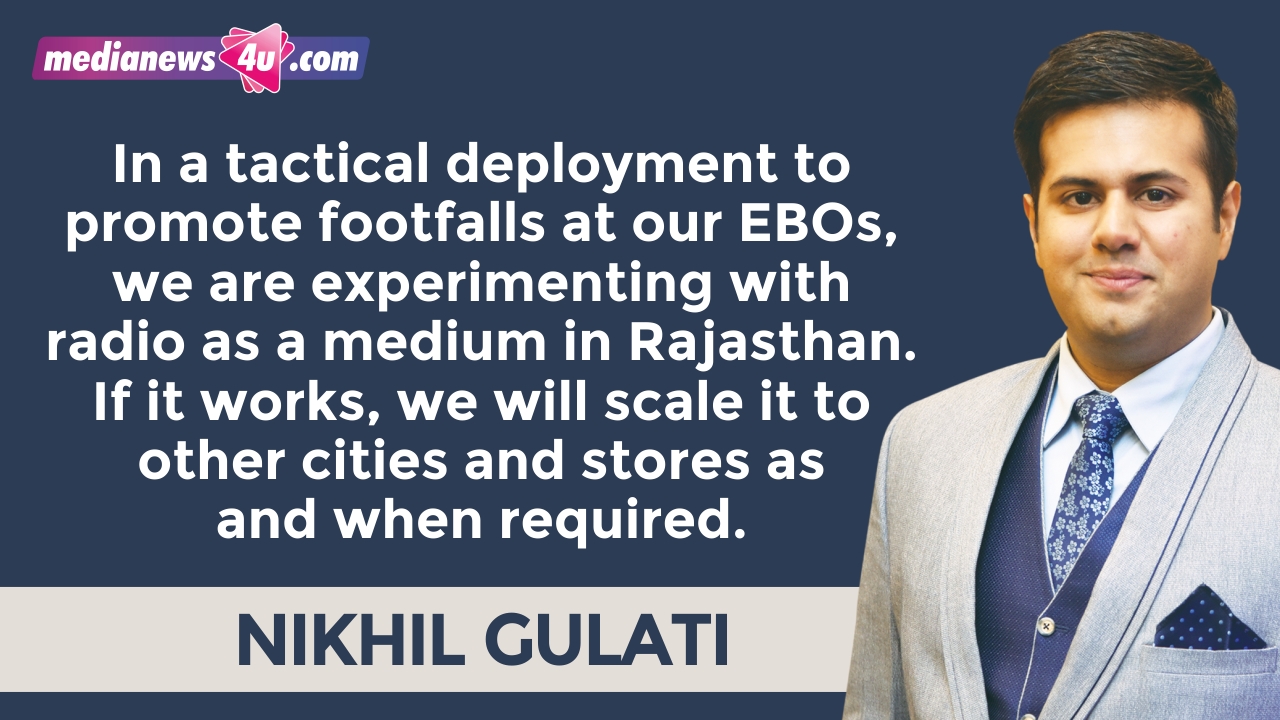Clovia, Zivame, Amante – all three are now owned by Reliance Retail. How is Clovia distinct from other players in women’s innerwear within Reliance and competitors like Enamor?
When you speak about Amante or Zivame, they have a premium positioning; their pricing is on a higher side. Clovia is in the affordable premium pricing segment; the positioning is very distinct for us. We are selling Amante bras and swimwear on our website also and it started as a core offline brand, not D2C. Zivame and Clovia had their beginnings in D2C. Now, Clovia specifically has a strong omnichannel play. Our footprint is spreading rapidly in the offline space. So the distinction is based on pricing and availability.
The third differentiating factor is the kind of language we speak. Our customers are an engaged community of users. Our communication is not limited to brand campaigns; instead, we are continuously talking to our consumers through various social media channels with an open channel of feedback. It is a community of engaged cohorts.
Is Clovia’s pricing a competitive advantage?
Certainly. India is a price sensitive market. Customers appreciate quality products at a reasonable pricing. If you get a product with high quality without paying that high markup and a product that is reliable, then the consumers will be loyal to that particular brand. They won’t be hesitant in referring the brand to their friends or family. That is the competitive advantage enjoyed by Clovia. Due to this, 60 to 65 pc of our annual sales come from tier 2 and 3 markets combined. We are not a brand concentrated on tier 1 alone, we are a brand that has pan-India presence.
What is the size of the organised women’s innerwear market and share of Clovia? What is the target?
The organised women’s innerwear market is $2.5 billion. Only 40 pc of the market is organised and the rest remains unorganised or unbranded. Clovia is seeing rapid growth; I won’t be able to share exact numbers. We are working towards becoming leaders among the branded players. Offline push is one of the brand’s major strategies. We are opening our exclusive outlets at a rapid pace. Also, appointing distributors and getting into general trade, tying up with large format stores are also part of the growth strategy as offline shopping is back to pre-pandemic levels. We will be present on all points of sale (formats) in the future.
Clovia offers a range of products from those targeted at teens to mothers. Who is the core consumer / TG?
The main goal of Clovia is to be present at every life stage of a woman. From teen to office to bridal to motherhood, we have offerings in all age segments. We have also ventured into personal care recently. The core TG remains 18 to 44 years, female, across the country. As mentioned, we are present across all life stages of a woman.
Clovia started with lingerie and has now expanded to women’s hygiene (intimate wash) and personal care (Skivia). A media report in January 2023 said bras accounted for 50 to 65 pc of sales, activewear 10 pc and nightwear 15 pc. How is each category growing and how much do you expect personal care to contribute by Dec 2023 (or March 2024)?
All three categories are growing steadily. There was a tectonic shift or demand in terms of nightwear and active wear during the pandemic. Even post-pandemic we witnessed a high surge in active wear, but that has normalised now. The numbers remain the same for all the mentioned categories.
I don’t want to put a number to Skivia right now as it is in a nascent stage. Right now, we are getting the right products out in the market. While we were taking baby steps for Clovia we were concentrated on the iteration of the product – we are following the same process for Skivia. Apart from being present on Clovia.com, we are also present in all the marketplaces as well. The products are also available at our EBOs. Now we are focused on creating awareness among the consumers about Skivia products. We are also taking feedback from consumers and trying to incorporate it in our product offerings.

Skivia claims to use natural solutions and avoid harmful chemicals. How is it priced vis a vis other brands that make similar claims – like chemical-free and vegan friendly?
Skivia comes under the Clovia umbrella and we stand for affordable premium pricing. We want that personal and skin care should be accessible to everyone. Hence, pricing strategy would be similar to Clovia. We are confident that the ingredients used in our personal care products are much superior than our competitors; still we keep it in the range of our other products.

The personal care space is highly competitive. Your overall marketing cost for Clovia is 12 to 15 pc of revenue (report). Will the marketing avenues and share of spend be different for Skivia?
As of now the marketing for Skivia products is very tactical. We are going the digital first route. We are also using influencer marketing because skin care is highly skewed towards it. We are very confident about the quality of the product as well.
Clovia has signed Shraddha Kapoor as brand ambassador recently. Was there a need felt for star value? How will you evaluate RoI?
We have seen brands promoting male underwear for decades and that’s very normalised, but taboo exists when promoting a female intimate brand. The wall has to be broken. Conversations surrounding the female innerwear category need to be taken to the living room and for that we have onboarded Shraddha Kapoor, one of the most followed celebrities on social media platforms. That has helped in breaking the proverbial wall. It adds the trust and credibility factor to the brand. In the campaign, we have also included models of various body types. That’s a starting point to building the brand for the future. It is a long-term vision.
In terms of ROI, apart from business metrics which saw an uptick during the campaign, whether website and app traffic or revenue growth, the mind metrics has also improved. The awareness level of the brand has also improved.
In January 2023, it was stated that the offline channel accounted for 10 to 12 pc of the company’s revenue, which is expected to cross 25 pc by the end of FY24. How do you see offline sales growing?
Yes, we are expecting it to grow and to contribute over 25 pc of the overall revenue by the end of 2024. We are opening EBOs across the country, we are also rapidly signing distributors across the country. So we are going to see positive growth in the coming years.
There are stated plans to expand offline presence in tier-2 and tier-3 towns. How many towns are you present in and how many more are you looking at? Which cities and towns are you likely to enter?
As of now, we are present in 13 states. We are looking to be present in all states and major cities by the end of 2023. As stated earlier, our strength has been in tier 2 and 3 cities; they will definitely remain a focus area for us.
About the cities and towns we are likely to enter immediately, the plans are underway.
Is there a correlation between offline presence in a city and online contribution from that city? Also, is there an omnichannel play?
For a D2C brand that doesn’t hold true, but once you get into omnichannel play it becomes relevant. We haven’t seen the trend of sales growth because of the offline presence. Due to our massive presence online, our stores receive visibility. And there is trust with the touch and feel element coming into the picture through the stores.
In terms of offline, our presence in North India is huge and in the coming years we will be present equally across geographies. When it comes to online contribution, North, South, West and East contribute equally. Bengaluru and Chennai are two significant contributors from South India; and Mumbai and Pune from the West.
Is there a difference in online and offline shares between metros, tier-1 and others?
The skew of tier 2 and 3 cities contributing to 60 to 65 pc to the business, it is the same as of now. Currently it is difficult to comment on the same. Every third day we are opening a new store, so right now conclusive sales evidence into that split is difficult to say.
Clovia had stated plans of expanding from 45 exclusive outlets in early 2023. What is the number now? How many are in metros, tier 1 and beyond?
Currently it stands at 65 stores. By March 2024, we expect it to be 250 to 300 stores. Among the 13 states we are present in, 50 pc of the exclusive stores will be in metros and tier 1 and tier 2, and beyond it will be another 50 pc.
Clovia.com also lists a lot of other stores where the brand is present. Is it a shop-in-shop (SIS) concept? Do you have a presence in large format MBOs or have plans for the same?
The large format stores we are present in include Trends, Fashion Factory, Central… and we will be soon present in Reliance Mart. We are also present in shop-in-shops and we will soon be seen in more MBOs and mom and pop shops as well.
You have a category called bridal nightwear. How is it faring?
We see an upsurge in sales and website traffic for the bridal nightwear during the wedding season, that is October-November and January-February. For South India, it is during June-July. We subsequently have more SKUs in the category during the wedding season.
Early in 2021, the brand launched Bra-Bot – an online AI-based chatbot curated to help one buy the right innerwear and other categories. What is the usage rate? What are the other technologies used by the brand?
We have a proprietary tool called Clovia Curve Fit Test, which helps women understand the right size for them. One needs to input answers to certain questions and then it will recommend the right size and fit for you. Over 7.5 lakh women have taken this test on our website and app thus far.
We also have a tool to understand the demands at various locations and this helps us maintain our supply chain.
For example, if at a particular place in a city, if we have an exclusive brand outlet of Clovia, within 3 km radius we might have a Clovia SIS and in another 5 kms radius another EBO. These stores will have different stock depending on buying trends or patterns. That’s also a proprietary tool which suggests what to supply, when and where, and also which products work in which areas.
We also have a period and fertility tracker; it is part of community building. I spoke earlier about feedback and the iterative process. Based on continuous feedback, we have 140 million user data points. We keep evolving our product portfolio based on that.
With ‘Happy is my Superpower’ the brand did a 360-degree campaign over digital, cinema and social media. Print was missing from the mix. With retail expansion, do you see scope for print?
We didn’t leverage print for ‘Happy is my Superpower’. We were on television, digital, OOH and cinemas. We are constantly exploring and evaluating our media mix. In a tactical deployment to promote footfalls at our EBOs, we are experimenting with radio as a medium in Rajasthan. We have been doing it for the last 15 days and will continue for the next 15 days. If it works, we will scale it to other cities and stores as and when required.

Our marketing decisions are based on data. So, if it is suggested that in a certain city or state print is the best option for the brand, then definitely we will go with that medium. The simple marketing logic we follow is to be where consumers are.
We are not planning to launch a new campaign till June 2023. As of now, the focus is on retail expansion.
(First published by The Free Press Journal BrandSutra. Content powered by MediaNews4u.com. Feedback: [email protected])

















